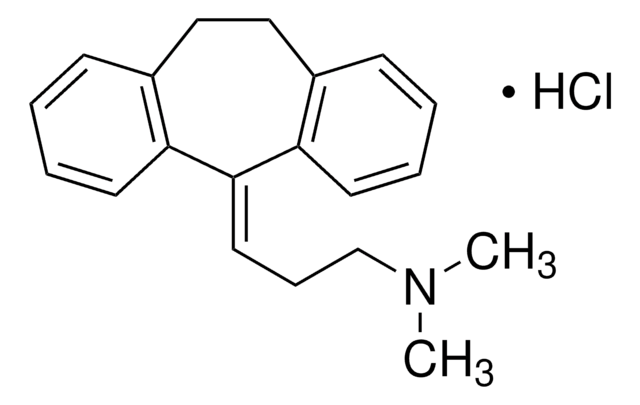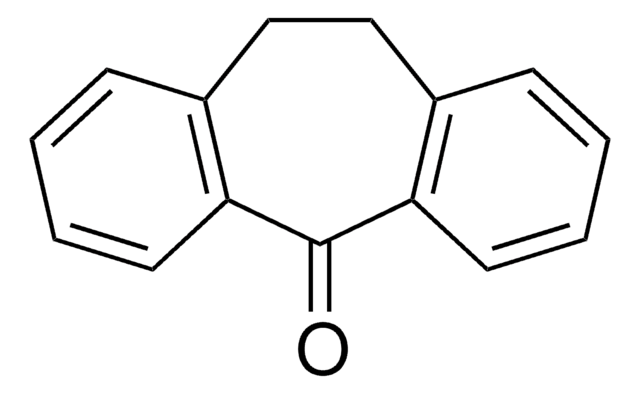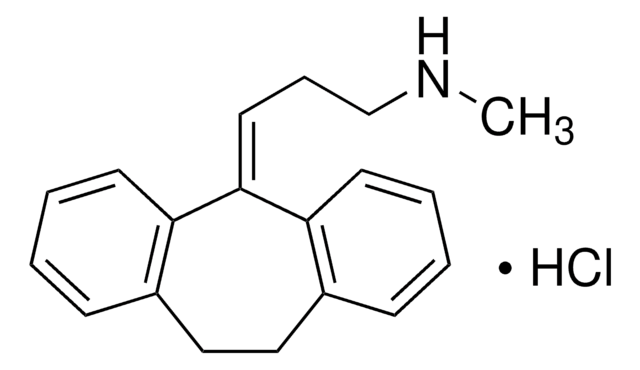1029002
USP
Amitriptyline hydrochloride
United States Pharmacopeia (USP) Reference Standard
About This Item
Produits recommandés
Qualité
pharmaceutical primary standard
Famille d'API
amitriptyline
Fabricant/nom de marque
USP
Application(s)
pharmaceutical (small molecule)
Format
neat
Chaîne SMILES
Cl[H].CN(C)CC\C=C1\c2ccccc2CCc3ccccc13
InChI
1S/C20H23N.ClH/c1-21(2)15-7-12-20-18-10-5-3-8-16(18)13-14-17-9-4-6-11-19(17)20;/h3-6,8-12H,7,13-15H2,1-2H3;1H
Clé InChI
KFYRPLNVJVHZGT-UHFFFAOYSA-N
Informations sur le gène
human ... SLC6A2(6530) , SLC6A4(6532)
Vous recherchez des produits similaires ? Visite Guide de comparaison des produits
Description générale
Application
- Amitriptyline Hydrochloride Tablets
- Chlordiazepoxide and Amitriptyline Hydrochloride Tablets
- Cyclobenzaprine Hydrochloride Extended-Release Capsules
- Perphenazine and Amitriptyline Hydrochloride Tablets
Actions biochimiques/physiologiques
Remarque sur l'analyse
Autres remarques
Produit(s) apparenté(s)
Mention d'avertissement
Danger
Mentions de danger
Conseils de prudence
Classification des risques
Acute Tox. 3 Oral - Aquatic Acute 1 - Aquatic Chronic 1 - Eye Irrit. 2 - Repr. 2
Code de la classe de stockage
6.1C - Combustible acute toxic Cat.3 / toxic compounds or compounds which causing chronic effects
Classe de danger pour l'eau (WGK)
WGK 3
Point d'éclair (°F)
Not applicable
Point d'éclair (°C)
Not applicable
Certificats d'analyse (COA)
Recherchez un Certificats d'analyse (COA) en saisissant le numéro de lot du produit. Les numéros de lot figurent sur l'étiquette du produit après les mots "Lot" ou "Batch".
Déjà en possession de ce produit ?
Retrouvez la documentation relative aux produits que vous avez récemment achetés dans la Bibliothèque de documents.
Notre équipe de scientifiques dispose d'une expérience dans tous les secteurs de la recherche, notamment en sciences de la vie, science des matériaux, synthèse chimique, chromatographie, analyse et dans de nombreux autres domaines..
Contacter notre Service technique








